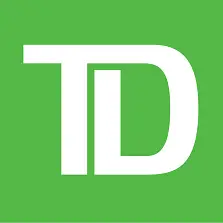RBC vs TD Bank – Which Canadian Bank is Better in March 2025?
RBC Royal Bank (RBC) and TD Canada Trust (TD) are both Canadian chartered banks and among the largest financial institutions in Canada known as the Big Five:
- Bank of Montreal (BMO)
- Canadian Imperial Bank of Commerce (CIBC)
- Bank of Nova Scotia (Scotiabank)
- Toronto-Dominion Bank (TD Bank)
- Royal Bank of Canada (RBC)
These large banks offer a variety of services and products that include chequing and savings accounts, mortgages, credit cards, lines of credit, insurance, RRSPs, GICs, stock trading, and the list goes on. With each Big Five bank offering similar services and products, it’s difficult to answer whether one bank is better than the other. They also do not have the same business structure as a company like World Financial Group. They’re much larger institutions with more diverse product bases.
So, what Big Five bank is the best, and which one should you bank with? Well, the answer is different depending on what you’re looking for. In this article, we are going to compare the two largest of the Big Five banks, the Royal Bank of Canada, and Toronto-Dominion Bank, to help you decide what bank is right for you.
RBC and TD Highlights
Before we compare the products and services of both RBC and TD, let’s go through some highlights of these impressive banks.
RBC Royal Bank Highlights

RBC Royal Bank, known as RBC Bank in the US, is headquartered in Montreal, Quebec, and has the largest market capitalization of any bank in Canada at $172.2 billion.
RBC is also a major Canadian employer with over 89,000 employees, 1,209 branches, and 4,200 ATMs across Canada. RBC Bank also has a significant business presence in the United States with 439 branch locations and thousands of ATMs and a strong presence in the Caribbean with 127 branches in 17 countries.
With the company being Canada’s biggest bank, it is also one of the most actively traded and the largest stock in the country, trading on the NYSE and TSX under the symbol RY.
TD Canada Trust Highlights

TD Canada Trust, also known as TD Bank in the United States (US), is headquartered in Toronto, Ontario, and has the second-largest market cap of any bank in Canada at $156.4 billion, only behind RBC.
TD Bank is a major Canadian employer with nearly 89,500 employees, 1,100 branches, and 2,600 ATMs across Canada. TD bank also has a significant business presence in the United States and is one of the top 10 largest banks in the US, with 1,300 branch locations and thousands of ATMs.
Product and Service Comparison
Given RBC and TD’s extensive product and service options, we decided to focus on the most commonly used, which includes mortgages along with personal banking products such as chequing accounts and savings accounts.
All of the Big 5 banks offer accounts for investors like TFSAs and RRSPs. Most of the accounts across all institutions are virtually the same. So again, we’ll mostly target products that vary from bank to bank in terms of fees and benefits in this piece.
Mortgage Rates
Each of the Big Five banks offers reasonably comparable mortgage rates, with RBC and TD currently offering the lowest rates. Looking at three mortgage options Canadians commonly choose, 5-Year variable, 5-Year fixed, and 3-Year fixed, RBC offers slightly better mortgage rates at the time of update. However, with the size of the average Canadian mortgage approaching $375,000, even a small difference in mortgage rates can have a large impact over time.
|
5-Year variable |
5-Year fixed |
3-Year fixed |
|
|
RBC Royal Bank |
5.00% |
5.29% |
5.55% |
|
TD Canada Trust |
5.15% |
5.44% |
5.59% |
Chequing Accounts
A chequing account is the most commonly used personal account. Cash in these accounts is used to pay bills through cheques, automatic withdrawals, Interac e-transfers, and wires, and is where our pay cheques are deposited. Below are the main features of the chequing accounts offered by RBC and TD.
RBC Chequing Accounts
RBC Day-to-Day Banking
This RBC chequing account offers the basics and includes 12 free debits each month, free e-transfers, a $4 monthly fee that can be rebated for users 65 or older, and does not have a minimum balance requirement.
RBC Advantage Banking
The RBC Advantage Banking chequing account includes unlimited free transactions in Canada each month, free e-transfers, free use of RBC ATMs, and a monthly fee of $11.95 that can be rebated for full-time students and newcomers to Canada (within five years of arrival), a reduced monthly fee for seniors of $7.95, and no minimum balance requirements.
RBC Signature No Limit Banking
This RBC chequing account offers unlimited debits in Canada, free e-transfers, no fee to use RBC ATMs, and up to three monthly non-RBC ATM fees waived, a monthly fee of $16.95 that is reduced to $12.95 for seniors, no minimum balance required, up to $48 rebate on the annual fee of an eligible credit card, and, a free iPad (conditions apply).
RBC VIP Banking
The RBC VIP Banking chequing account offers unlimited debits worldwide, free e-transfers, no fee to use RBC ATMs or any international ATMs, a monthly fee of $30 that is reduced to $22.50 for seniors, no minimum balance required, up to $120 rebate on the annual fee of an eligible credit card, waived RBC Direct Investing maintenance fees, and, a free iPad (conditions apply).
TD Chequing Accounts
TD Student Chequing Account
The Student Chequing Account is available for full-time students and offers: unlimited transactions per month, free e-transfers, no monthly fee, and 50% more Stars at participating Starbucks locations.
TD Minimum Chequing Account
This Minimum Chequing Account offers: 12 free account transactions per month and $1.25 for additional transactions, a $0.50 fee for e-transfers up to $100, and $1.00 for e-transfers over $100, a monthly fee of $3.95 that is reduced to $0 for seniors and beneficiaries of a Registered Disability Savings Plan
TD Every Day Chequing Account
The TD Every Day Chequing Account offers 25 free account transactions each month, free e- transfers, a monthly fee of $10.95 that is reduced to $8.20 for seniors, a monthly fee rebate if a $3,000 balance is maintained, and, up to a $120 rebate on the annual fee of an eligible credit card.
TD Unlimited Chequing Account
This Unlimited Chequing Account offers free unlimited transactions, free unlimited e-transfers, a monthly fee of $16.95 that is reduced to $11.95 for seniors, a monthly fee rebate if a $4,000 balance is maintained in the account, up to $139 rebate on the annual fee of an eligible credit card, and, a $300 Amazon.ca gift card when opening and using the account (conditions apply).
TD All-Inclusive Banking Plan
The TD All-Inclusive Bank Plan account offers: free unlimited transactions, free unlimited e-transfers, a monthly fee of $29.95 that is reduced to $22.45 for seniors, a monthly fee rebate if a $5,000 balance is maintained in the account, an annual credit card fee rebate on eligible credit cards, no fee to use TD and non-TD ATMs, and, a $300 Amazon.ca gift card when opening and using the account (conditions apply). This chequing account also comes with a free safety deposit box, free certified cheques, free money orders, and personalized cheques.
Savings Accounts
Most Canadians have one or two savings accounts to either save or park their money until they know what to do with it. Below are the main features of the savings accounts offered by RBC and TD.
RBC Savings Accounts
RBC High Interest eSavings
The RBC High Interest eSavings account offers an annual interest rate of 1.1%, one free RBC ATM withdrawal each month, no monthly fees, a $1.00 fee for e-transfers and a $2.00 RBC fee when using non-RBC ATMs.
RBC Enhanced Savings
This Enhanced Savings account offers a tiered interest rate beginning when the account balance reaches $5,000 or more, one free RBC ATM withdrawal each month, no monthly fee, a $1.00 fee for e-transfers, and a $2.00 RBC fee when using non-RBC ATMs.
RBC Day to Day Savings
The RBC Day to Day Savings account offers a tiered interest rate with no balance requirement, one free RBC ATM withdrawal, no monthly fee, a $1.00 fee for e-transfers, and a $2.00 RBC fee when using non-RBC ATMs.
RBC US High Interest eSavings
This US High Interest eSavings account offers an annual interest rate of .0250%, one free RBC ATM withdrawal each month, no monthly fee, a $1.00 fee for e-transfers, and a $2.00 RBC fee when using non-RBC ATMs.
TD Savings Accounts
TD ePremium Savings Account
The TD ePremium Savings Account offers a tiered interest rate of 1.25% starting when the account balance reaches $10,000 or more, a $5.00 fee for each transaction, a $2.00 TD fee for non-TD ATMs, and no monthly fee.
TD Every Day Saving Account
This Every Day Savings account offers a tiered interest rate with no balance requirement, one free transaction per month and a $3.00 fee for additional transactions, a $2.00 TD fee for non-TD ATMs, and no monthly fee.
TD High Interest Savings Account
The TD High Interest Savings Account offers an annual interest rate of 0.050% with a balance of $5,000 or more, a $5.00 fee per transaction that is waived with a monthly account balance of $25,000 or more, a $2.00 TD fee when using non-TD ATMs, and no monthly fee.
RBC versus TD – Which Bank is Best
RBC Royal Bank and TD Canada Trust are excellent options when choosing a bank and their product and service offerings are comparable. Chequing accounts, mortgages, lines of credit, HELOCs, etc. However, a few notable differences give RBC products a close win.
First, RBC currently offers better mortgage rates than TD. This slight advantage will continue to grow as interest rates and home prices continue to rise. Second, TD’s website looks and functions better than RBC’s; however, it is easier to dive into and understand RBC’s small print/conditions.
RBC and TD offer excellent mobile apps, with RBC ranked #1 in Canada for mobile app satisfaction by J.D. Power, just nudging past TD, which was ranked #2.
Frequently Asked Questions – RBC versus TD
Is TD or RBC Better?
TD Canada Trust and RBC Royal Bank offer similar products and services. With rising interest rates and ever-increasing residential property prices, RBCs slightly better mortgage rates give it the edge.
Is RBC bigger than TD?
Yes, RBC has a larger market capitalization at $172.2b compared to TD’s $156.4b, and has $1.88 trillion in assets as of Q2 2022, compared to TD’s $1.84 trillion in assets.
